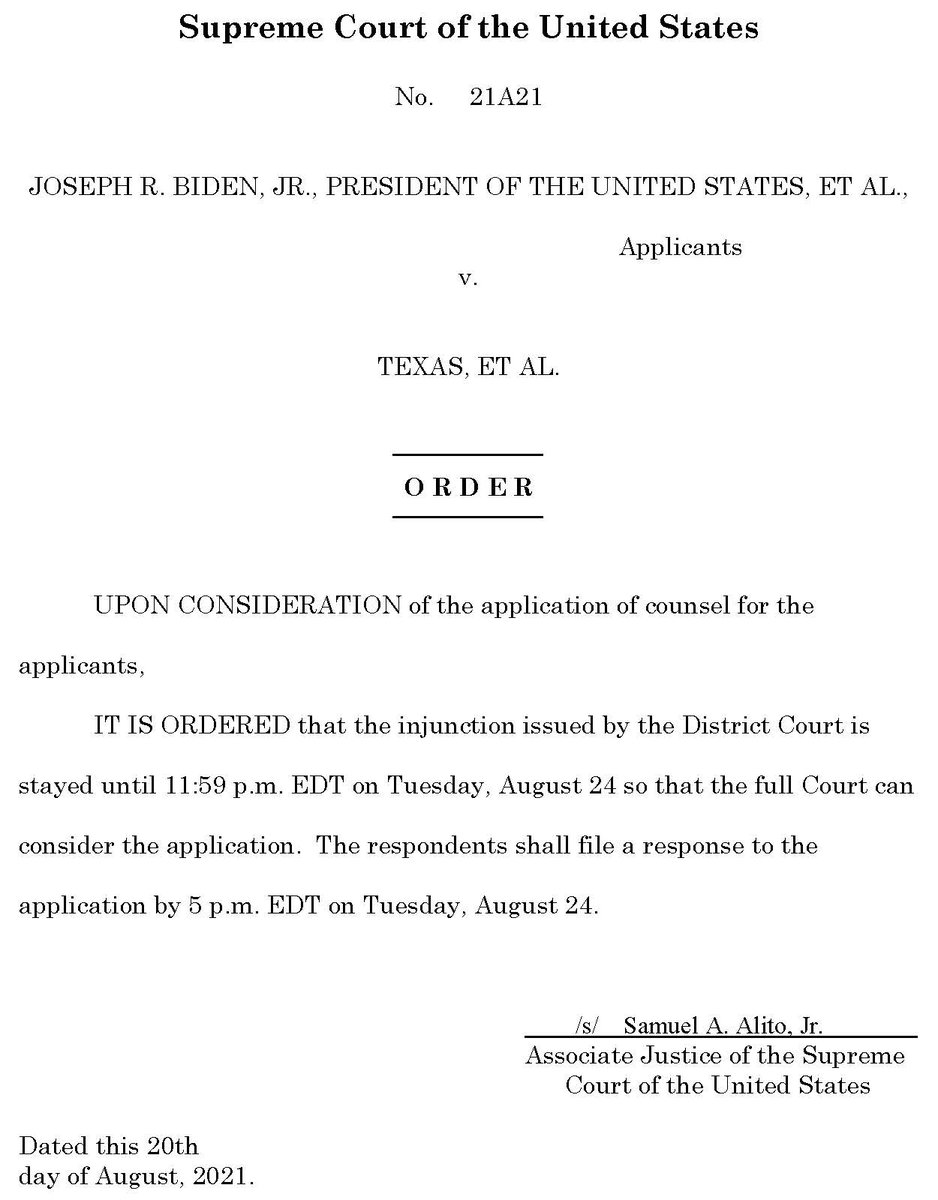1. To mark today's publication day for "The Shadow Docket," I wanted to write a #thread not about the book, but about gratitude—to *everyone* who helped to make this day a reality, and to whom I am so deeply and profoundly grateful.
Here goes:
Here goes:
2. At the top of the list of people without whom there wouldn't be a book are my fantastic agent, @AliaHanna, and my amazing editor, @emmafberry.
From the beginning, both Alia and Emma understood not just what I hoped to accomplish in the book, but how to make it happen.
From the beginning, both Alia and Emma understood not just what I hoped to accomplish in the book, but how to make it happen.
3. I'm also grateful to my sister-in-law, @doree, who in addition to being a wonderful writer of her own and the person who introduced me to Alia, has also been an incredibly patient correspondent and soother of nerves all the way through this process.
4. I'm grateful to an army of @UTexasLaw students, including two semesters' worth of seminar participants, for all of their feedback and support. And special thanks to my RAs, including Rachael Jensen, Bonnie Devany, Christina Peterman, and Chelsea Sincox, for putting up with me.
5. I'm grateful to faculty colleagues too numerous to count, both at UT and elsewhere, for conversations about the book and formal and informal reactions to drafts.
At the top of this list is my former Dean, Ward Farnsworth, who pushed me more than anyone else to write *a* book.
At the top of this list is my former Dean, Ward Farnsworth, who pushed me more than anyone else to write *a* book.
6. I'm grateful to my friends and colleagues in the #SCOTUS press world, especially @Arianedevogue, @JoanBiskupic, @Dahlialithwick, and Linda Greenhouse, who in addition to all of their personal support & advice, are models for how to write about the Court with clarity and élan.
7. I'm grateful to @WilliamBaude, not only for so graciously allowing me to appropriate a term he coined, but also for being the first to realize that one of the ways to draw increasing public attention to the more technical work of the Supreme Court is to give it a catchy name.
8. I'm grateful to my college mentor, the late Nasser Hussain, who not only taught me how to write, but also how to think—how to see the interwoven nature of law and the society it both structures and responds to.
I wouldn't be a lawyer, let alone where I am today, but for him.
I wouldn't be a lawyer, let alone where I am today, but for him.
9. I'm grateful to my family—my parents and my brilliant, talented sisters, Liz and Abi—for not only supporting me and the book in all kinds of ways big and small, but for not murdering me when I was an especially obnoxious son/brother growing up. I would've deserved it...
10. Last, but certainly not least, I'm grateful to my crew—the love of my life & my best friend, @KSVesq; and my daughters, Maddie and Sydney.
Having a partner who is as excited about your work as you are is truly priceless. And having kids to come home to makes it all worth it.
Having a partner who is as excited about your work as you are is truly priceless. And having kids to come home to makes it all worth it.
11. It's hokey to say that it takes a village, but I can say, now with experience, that it really does.
Today's a really special day, but only because a whole lot of people (including some who I've surely neglected above) helped to make it happen.
THANK YOU, everyone!!
/end
Today's a really special day, but only because a whole lot of people (including some who I've surely neglected above) helped to make it happen.
THANK YOU, everyone!!
/end
12. One more: Although I mentioned them yesterday, I’d be remiss if I didn’t again thank the entire @BasicBooks publicity & marketing team—Liz Wetzel, Jessica Breen, Meghan Brophy, Alcimary Peña, & all of their colleagues—for the most thankless part of making the book a reality.
• • •
Missing some Tweet in this thread? You can try to
force a refresh

 Read on Twitter
Read on Twitter











